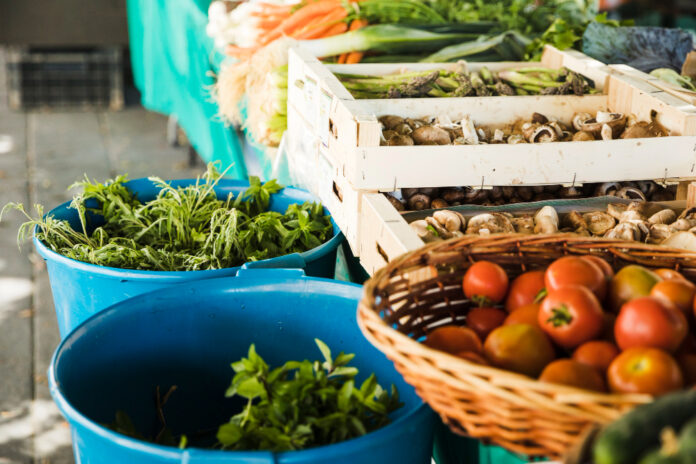Gardening is a rewarding and sustainable way to bring fresh vegetables to your table. Whether you have a spacious backyard or a small balcony, gardening for beginners in India is easier than you think. This beginner-friendly guide will help you start your gardening journey with ease.
Why Start a Home Vegetable Garden?
- Fresh and Organic Produce – Homegrown vegetables are free from harmful pesticides and chemicals.
- Cost-Effective – Saves money on groceries by growing your own vegetables.
- Eco-Friendly – Reduces carbon footprint and promotes sustainability.
- Therapeutic and Stress-Relieving – Gardening is a great way to relax and connect with nature.
Best Vegetables for Beginners in India
Choosing easy-to-grow vegetables ensures a successful gardening experience. Here are some great options:
- Tomatoes – Require minimal care and grow well in pots.
- Spinach – Grows quickly and needs little maintenance.
- Coriander – Perfect for small spaces and grows fast.
- Mint – Thrives in Indian weather and spreads easily.
- Chilies – Requires minimal water and care.
- Radishes – Fast-growing and ideal for beginners.
- Okra (Bhindi) – A resilient plant that grows well in warm climates.
Step-by-Step Guide to Growing Vegetables at Home
Step 1: Choose the Right Location
Select a spot that receives at least 4-6 hours of sunlight daily. If you have limited space, use balconies, terraces, or windowsills for container gardening.
Step 2: Pick the Right Containers
For small spaces, use grow bags, pots, or recycled containers with drainage holes. For ground gardening, ensure proper soil preparation.
Step 3: Prepare Nutrient-Rich Soil
Use organic compost, coco peat, and garden soil in equal parts for best results. Regularly adding compost boosts plant health and growth.
Step 4: Planting Seeds or Seedlings
- Buy quality seeds or saplings from a trusted nursery.
- Follow the recommended depth for planting seeds.
- Water lightly to keep the soil moist.
Step 5: Watering and Maintenance
- Water in the early morning or late evening to avoid water loss due to evaporation.
- Avoid overwatering to prevent root rot.
- Mulch the soil with dried leaves or straw to retain moisture.
Step 6: Protect Plants from Pests and Diseases
- Use natural pesticides like neem oil to keep pests away.
- Introduce companion plants like marigolds to deter insects.
- Remove weeds regularly to keep plants healthy.
Step 7: Harvesting Your Vegetables
Each vegetable has a different harvesting time:
- Spinach & Coriander – 25-40 days
- Radish – 30-40 days
- Tomatoes – 60-80 days
- Okra – 50-60 days
- Chilies – 70-80 days
Harvest at the right time for maximum flavor and nutrition.
Common Gardening Mistakes to Avoid
- Overwatering – Leads to root rot; water only when the soil feels dry.
- Using the Wrong Soil – Poor soil leads to weak plants; always enrich with compost.
- Not Providing Enough Sunlight – Most vegetables need direct sunlight.
- Ignoring Pests – Regularly inspect plants and use organic pest control.
- Overcrowding Plants – Leaves no room for proper growth; space them adequately.
FAQs About Gardening for Beginners India
1. What is the easiest vegetable to grow at home in India?
Spinach, coriander, mint, and tomatoes are some of the easiest vegetables to grow for beginners.
2. How much sunlight do vegetables need to grow?
Most vegetables need at least 4-6 hours of direct sunlight daily.
3. What is the best way to water vegetable plants?
Water early in the morning or late evening to prevent evaporation and keep the soil moist but not soggy.
4. Can I grow vegetables without soil?
Yes! Hydroponic gardening allows you to grow vegetables in nutrient-rich water instead of soil.
5. How can I protect my plants from pests naturally?
Use neem oil, garlic spray, or companion planting with flowers like marigolds to repel pests.
6. Is compost necessary for home gardening?
Yes, compost improves soil fertility, adds nutrients, and helps plants grow healthier.
7. Can I grow vegetables in plastic containers?
Yes, but ensure the containers have drainage holes to prevent waterlogging.
8. How long does it take for vegetables to grow?
It depends on the vegetable. Leafy greens grow in 30-40 days, while fruiting vegetables like tomatoes and chilies take 60-80 days.
Conclusion
Starting a home vegetable garden in India is simple and rewarding. With proper planning, the right soil mix, and regular care, you can enjoy fresh and organic vegetables all year round. Follow these beginner-friendly tips to start your gardening journey today!
















